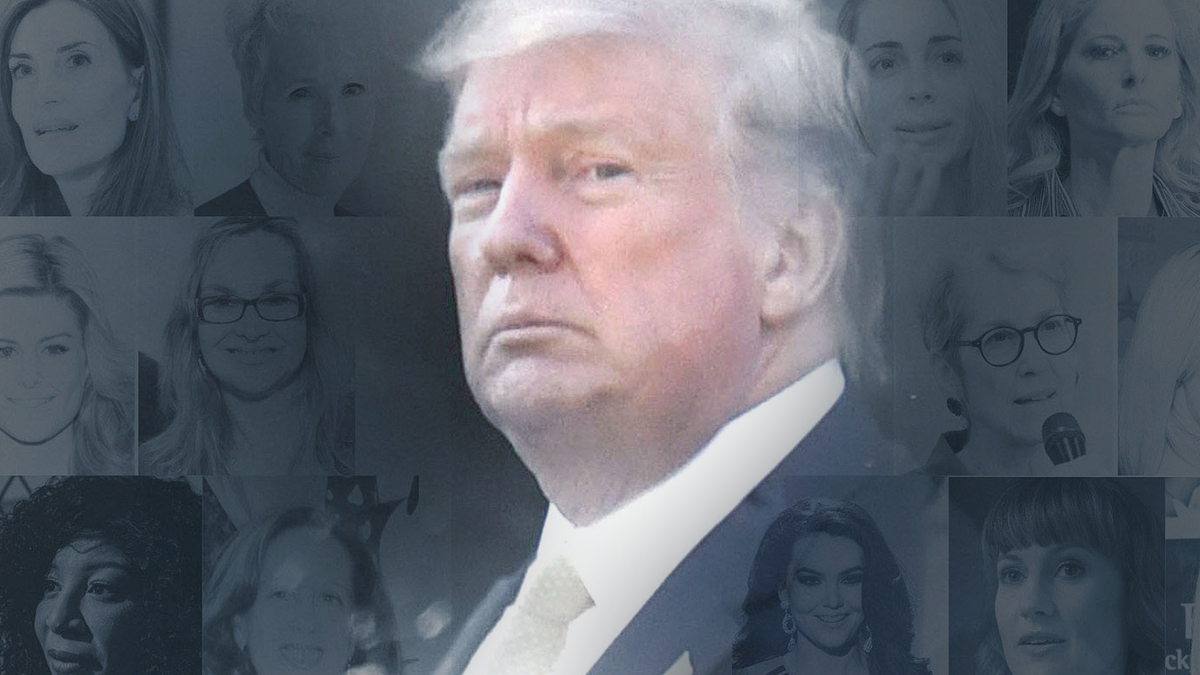Did Allegations Of Sexual Misconduct Affect Donald Trump's Presidential Bid?

Table of Contents
The 2016 US Presidential election was a tumultuous affair, marked by unprecedented levels of controversy. A significant element of this controversy involved numerous allegations of sexual misconduct leveled against Republican nominee Donald Trump throughout his campaign. This article examines the extent to which these allegations impacted his bid for the presidency, analyzing public opinion, media coverage, and electoral results to determine their influence on voters. We will delve into the specifics of the accusations, their timing, and their potential influence on the election outcome.
The Nature and Number of Allegations
Types of Allegations
The allegations against Donald Trump ranged widely in severity. They included accusations of inappropriate touching, unwanted sexual advances, and more serious claims of sexual assault. These accusations came from a variety of sources, including former beauty pageant contestants, journalists, and other individuals who claimed to have had encounters with Trump. Sources ranged from interviews and news reports to sworn statements and legal filings. The sheer number and varied nature of the allegations contributed significantly to the controversy surrounding his candidacy.
- Key Accusers: Several women came forward with detailed accounts of alleged misconduct, each with varying levels of supporting evidence. These accounts, while varying in specifics, painted a picture of a pattern of behavior. The timing of these accusations was also crucial, with some surfacing before the election and others emerging during and after the campaign.
- Timing of Accusations: The release of the Access Hollywood tape, where Trump was recorded making lewd comments about women, was a pivotal moment. Subsequently, numerous women came forward with their own stories, leading to increased media scrutiny and public discussion. The timing of these accusations often coincided with critical junctures in the campaign, potentially amplifying their impact.
- Credibility of Allegations: The credibility of the accusations varied significantly, with some supported by additional evidence or corroborating witnesses while others remained largely unverified. The lack of consistent corroboration in some cases became a key point in Trump's defense.
Media Coverage and Public Reaction
News Outlets and Their Approach
Media coverage of the sexual misconduct allegations varied significantly across different news organizations. While some outlets extensively covered the accusations and their potential implications, others gave them less prominence or framed them differently. Accusations of partisan bias in media coverage were common, with critics alleging that certain outlets downplayed or ignored the allegations due to political affiliations.
- Volume and Tone of Coverage: The volume of media coverage increased significantly following the release of the Access Hollywood tape. The tone of the coverage was also diverse, ranging from serious investigative journalism to more sensationalized reporting. This diversity fueled public debate and contributed to the polarization of opinions.
- Public Opinion Polls: Public opinion polls regarding the allegations showed mixed results. While some polls indicated that a significant portion of voters found the allegations credible and concerning, others showed that a substantial number of Trump supporters remained unwavering in their support, despite the accusations. This divergence in opinion highlights the deeply divisive nature of the issue.
- Social Media Trends: Social media played a substantial role in disseminating and amplifying the allegations, with discussions and debates raging across various platforms. The use of hashtags and trending topics created an echo chamber effect, reinforcing existing beliefs and limiting exposure to opposing viewpoints for some users.
Trump's Campaign Response and Strategy
Denials and Counter-Accusations
Donald Trump consistently denied the allegations throughout his campaign. His campaign employed various strategies to mitigate the potential damage, including:
- Public Statements: Trump often dismissed the allegations as politically motivated attacks or outright fabrications, frequently launching personal attacks against his accusers. He often used aggressive rhetoric and questioned the accusers' motives and credibility.
- Discrediting Accusers: The Trump campaign actively worked to discredit accusers, sometimes releasing statements questioning their character or past behavior. This approach aimed to cast doubt on the validity of the allegations and shift the focus away from the accusations themselves.
- Supporter Defense: Trump's supporters largely rallied behind him, often framing the allegations as part of a larger "witch hunt" orchestrated by the media and his political opponents. This robust defense from his base played a crucial role in mitigating the political impact of the allegations.
Electoral Impact and Analysis
State-Level Voting Patterns
Determining the precise electoral impact of the sexual misconduct allegations is challenging due to the numerous other factors influencing the election outcome. However, analysis suggests that while the allegations may have influenced some voters, their overall impact on the election's results varied across different states and demographics.
- Overall Vote Share: While the allegations undoubtedly generated negative press and contributed to a contentious atmosphere, they did not prevent Trump from winning the presidency. This suggests that while some voters may have been swayed by the allegations, a sufficient number remained supportive enough to offset this impact.
- Correlation between Media Coverage, Public Opinion, and Voting Behavior: While a correlation exists between media coverage and public opinion, translating this into a precise impact on voting behavior is difficult. Many factors beyond the allegations influenced voters' decisions.
- Influence of Other Factors: Economic conditions, policy preferences, candidate personalities, and broader political trends all contributed to the election outcome. The allegations were one element in a complex political landscape.
Conclusion
The question of whether sexual misconduct allegations significantly affected Donald Trump's presidential bid remains complex and multifaceted. While the accusations generated considerable media attention and undoubtedly influenced public opinion to some degree, their precise impact on the electoral outcome remains difficult to definitively quantify. The allegations formed one piece of a complex puzzle composed of numerous factors influencing the 2016 election. While some voters may have been swayed by the allegations, others remained steadfast in their support, highlighting the deeply polarized political climate. Further research is needed to fully understand the long-term implications of these accusations and their influence on political discourse. Continue the conversation and explore other analyses on the impact of sexual misconduct allegations on presidential campaigns.

Featured Posts
-
 Lena I Vladimir Na Transformativen Film Na 31st Sedona International Film Festival
May 17, 2025
Lena I Vladimir Na Transformativen Film Na 31st Sedona International Film Festival
May 17, 2025 -
 Investigation Uncovers Details Of Final Moments On Sunken Bayesian Superyacht
May 17, 2025
Investigation Uncovers Details Of Final Moments On Sunken Bayesian Superyacht
May 17, 2025 -
 Knicks News Brunsons Status Koleks Minutes And Key Games Ahead
May 17, 2025
Knicks News Brunsons Status Koleks Minutes And Key Games Ahead
May 17, 2025 -
 Class Action Lawsuit Alleges Deceptive Practices By Fortnite Maker Epic Games
May 17, 2025
Class Action Lawsuit Alleges Deceptive Practices By Fortnite Maker Epic Games
May 17, 2025 -
 Playing At The Best Online Casinos In New Zealand A Guide For Kiwis
May 17, 2025
Playing At The Best Online Casinos In New Zealand A Guide For Kiwis
May 17, 2025
